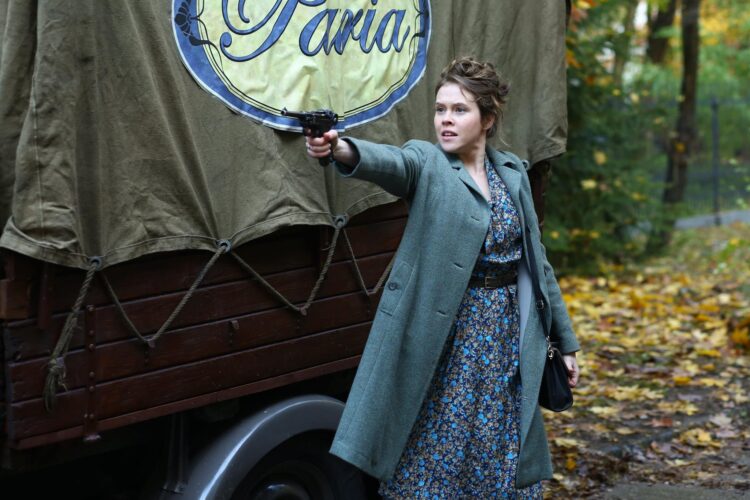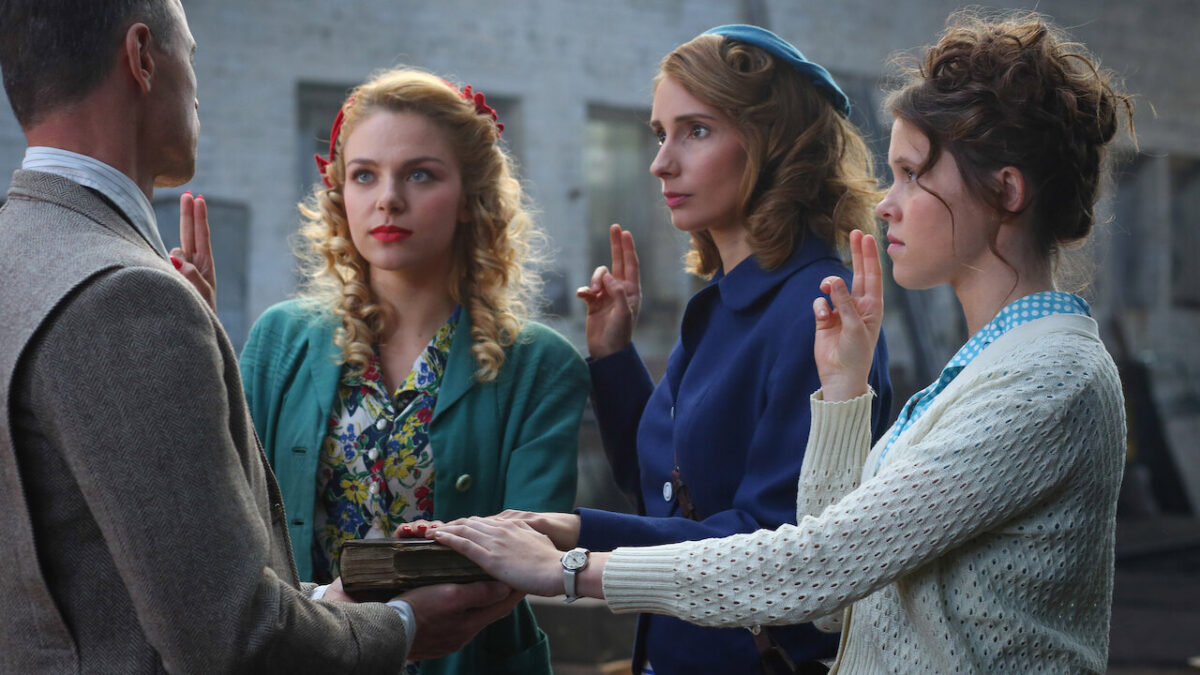Poland was bloodied and traumatized by World War II. Conquered and occupied by Nazi Germany, Poland is still licking its wounds and mourning its dead seven decades on.
Wartime Girls, a Polish television series now available on the ChaiFlicks streaming service, unfolds against the backdrop of these disastrous events.
Directed by Michal Rogalski and Karolina Syska, Wartime Girls begins on September 1, 1939 and focuses on the fate of three Polish women during this catastrophe. Eva (Ewka) is a petty thief. Irka works as a nurse. Both women are Catholics and live in Warsaw. Marysia, a violinist from Lodz, is Jewish.
In the first episode, German bombs fall on a prison, setting off explosions and prompting guards to release prisoners from cells. One of the escapees is Eva. At a hospital, patients and nurses, including Irka, run for their lives. In Lodz, German soldiers break into the apartment of Marysia’s upper middle-class family, threatening to kill her father.
The second segment opens in 1941 as Marysia (Aleksandra Pisula) escapes from the Nazi ghetto and visits her father’s lawyer. When she asks if she can stay at his house, he demurs, saying it is too risky. When she demands the $40,000 her father invested with him, he replies that the funds are safely in Switzerland. Detecting her desperation and anger, he gives Marysia the piddling sum of $200.
Marysia makes her way to Warsaw, where Eva (Vanessa Aleksander) proceeds to relieve her of her money. Feeling sorry for Marysia, whom she thinks is Jewish, Eva takes her under her wing.
The pair walk to the rustic home of Irka (Marta Mazurka), her mother and older brother. Irka, a kind-hearted soul whose fiancé in the Polish army has been missing since the start of the war, convinces her mother to hide Marysia after an ethnic German Pole tries to rape her. She reluctantly agrees to help Marysia when Irka observes she does not look Jewish.
This is an important point. Polish Jews who had “good faces” and looked like Christians had a far better chance of surviving than Jews with “bad” Semitic faces. There is also another matter to consider, though Wartime Girls does not explicitly mention it. Poles caught helping Jews were often executed by the Germans.
Eventually, the three women become friends and join forces to wreak vengeance on the ethnic German Pole who attempted to violate Marysia.
Judging by the first three episodes, he is the only real villain in the show, apart from the Germans, of course. Holding ethnic German Poles responsible for all the atrocities committed by Polish citizens against Jews is really unfair and, more precisely, inaccurate.

During the course of the third episode, Irka, Eva and Marysia join the “organization,” which is not mentioned by name but which is probably the Home Army, which resisted the Nazi occupation. They are recruited by Irma’s brother, to whom Eva is romantically attracted.
On their first collective mission, they smash the windows of two photography shops displaying photos of German army soldiers.
Marysia embarks on a solo mission to rob a German officer of his weapons. She succeeds. But in an implausible subplot, the German, a man of culture, invites her to his flat to play classical music.
Despite this improbable turn, Wartime Girls is fairly gripping, offering viewers a realistic picture of what life was like for average Poles during Germany’s brutal occupation.
